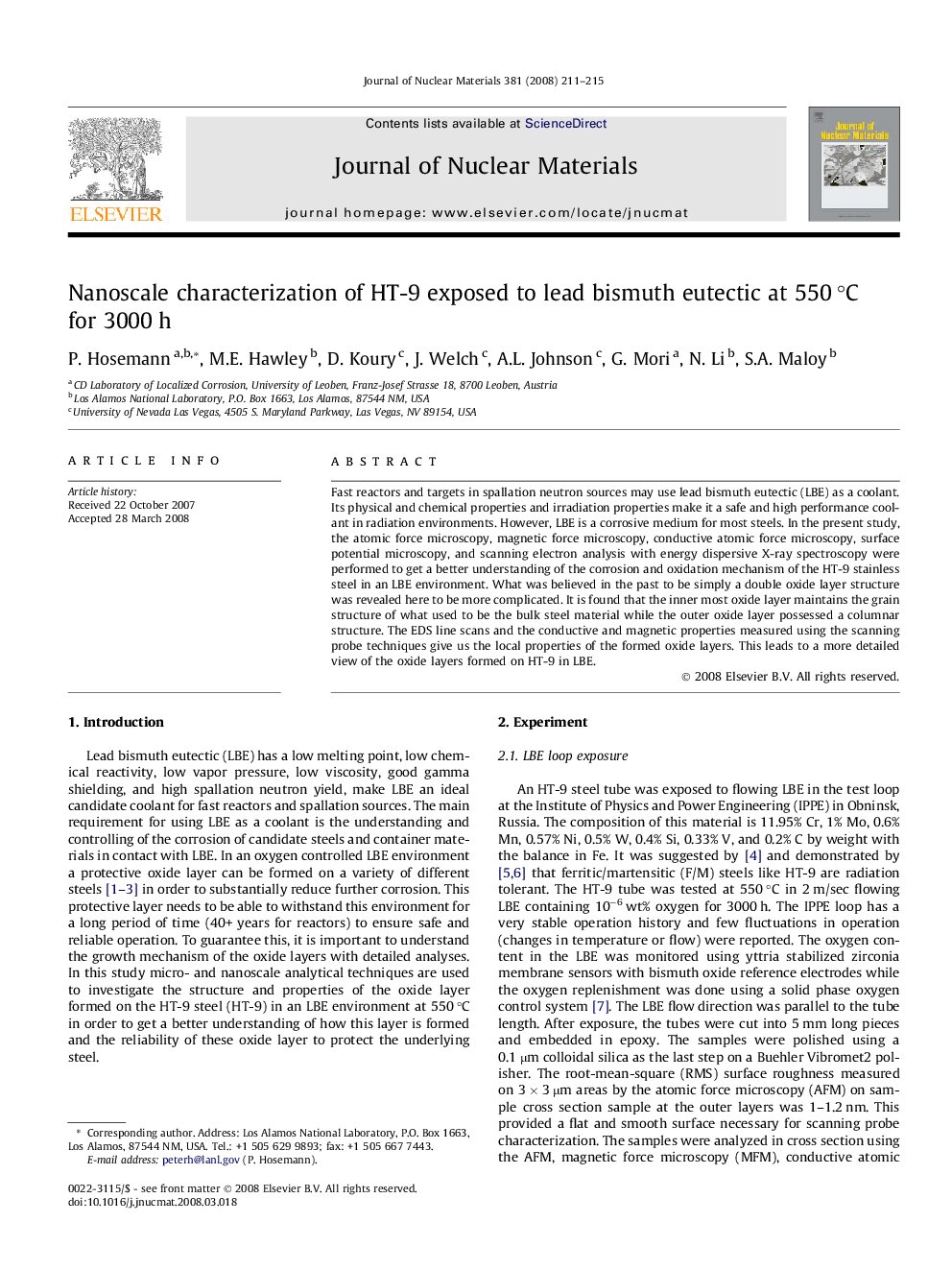| کد مقاله | کد نشریه | سال انتشار | مقاله انگلیسی | نسخه تمام متن |
|---|---|---|---|---|
| 1568469 | 999896 | 2008 | 5 صفحه PDF | دانلود رایگان |

Fast reactors and targets in spallation neutron sources may use lead bismuth eutectic (LBE) as a coolant. Its physical and chemical properties and irradiation properties make it a safe and high performance coolant in radiation environments. However, LBE is a corrosive medium for most steels. In the present study, the atomic force microscopy, magnetic force microscopy, conductive atomic force microscopy, surface potential microscopy, and scanning electron analysis with energy dispersive X-ray spectroscopy were performed to get a better understanding of the corrosion and oxidation mechanism of the HT-9 stainless steel in an LBE environment. What was believed in the past to be simply a double oxide layer structure was revealed here to be more complicated. It is found that the inner most oxide layer maintains the grain structure of what used to be the bulk steel material while the outer oxide layer possessed a columnar structure. The EDS line scans and the conductive and magnetic properties measured using the scanning probe techniques give us the local properties of the formed oxide layers. This leads to a more detailed view of the oxide layers formed on HT-9 in LBE.
Journal: Journal of Nuclear Materials - Volume 381, Issue 3, 15 November 2008, Pages 211–215